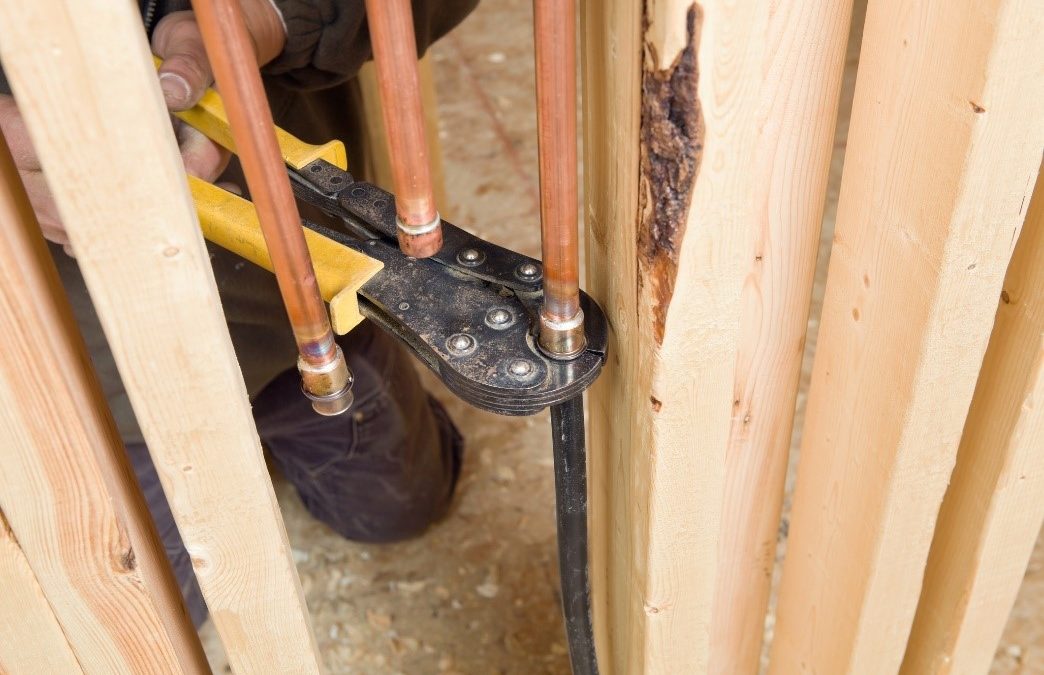Replacing a home’s pipes is an essential task that homeowners should consider to ensure the integrity and functionality of their plumbing system. Over time, pipes can deteriorate, corrode, and develop leaks, leading to many problems, such as low water pressure, foul-smelling water, and even structural damage. Therefore, it is crucial to address these issues promptly by opting for repiping a house.
Two popular choices among homeowners are cross-linked polyethylene (PEX) and copper pipes. Each option has pros and cons, so learning about the differences is important. Read below for more details about PEX vs. copper piping.
Flexibility and Ease of Installation
One significant advantage of PEX pipes is their flexibility. Unlike rigid copper pipes, PEX pipes can be easily bent and maneuvered around corners and obstacles, reducing the need for numerous fittings. This flexibility not only makes installation easier but also minimizes the chances of leaks due to fewer connection points.
On the other hand, copper pipes have been the go-to choice for plumbers for many years due to their durability and well-known performance. However, copper pipes can be more difficult to install, requiring precise measurements and fittings. If you’re undertaking a DIY project, keep in mind that copper pipe installation may be more challenging than working with PEX.
Cost
When it comes to cost, PEX pipes often have an advantage. They are more affordable than copper pipes, so they’re a popular choice for homeowners on a budget.
Copper pipes, however, tend to be more expensive than PEX pipes. While the upfront cost may be higher, copper pipes’ long-term durability and performance can offset the initial investment. The cost element ultimately depends on your personal preferences and budget.
Durability and Longevity
Both PEX and copper pipes offer good durability, but there are some differences to consider. PEX pipes are highly resistant to corrosion and scale buildup, ensuring the longevity of your plumbing system. They can handle harsh water conditions without developing leaks or clogs over time. PEX pipes are also less likely to burst or freeze in cold temperatures.
Unlike PEX pipes, copper is known for its durability and ability to withstand high temperatures. Copper pipes are also suitable for indoor and outdoor applications, making them versatile.
Compatibility With Hot Water Systems
If you’re looking for a piping material for hot water distribution, copper pipes may have the upper hand. Copper pipes can handle high temperatures without degrading or losing their structural integrity, while PEX pipes have limitations when running hot water.
Call Our Expert Plumber Today!
If you need assistance determining which type of pipes are right for your home or require professional installation services, don’t hesitate to contact us at Premier Plumbing & Leak Detection, LLC. Our experienced team in FL can provide expert advice about PEX vs. copper piping and ensure that your plumbing system is installed to the highest standards. Call us today for a consultation.


Recent Comments